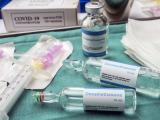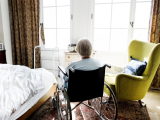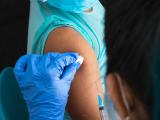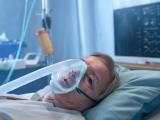A multicenter study of nearly 11,500 US mothers finds a link between more COVID-19 pandemic-related hardships, coping mechanisms, and behavior changes and greater traumatic stress.
Researchers from the University of Southern California led the nationwide study, which was published today in JAMA Network Open. The team asked 11,473 mothers participating in the Environmental Influences on Child Health Outcomes Program about their experiences during the pandemic, from April 2020 to August 2021.
Average maternal age was 37.8 years, 62.7% were White, 19.0% were Hispanic, 14.8% were Black, 3.3% were Asian, 3.0% were American Indian, and 21% completed more than one survey. A total of 76.6% of mothers said they attended at least some college, and 10.2% reported an annual household income of less than $30,000.
Healthcare disruptions, job loss, fewer hours
The average number of significant stress symptoms was 3.4, while the average Pandemic-Associated Traumatic Stress (PTS) score was 21.0 (range, 5 to 50, with higher numbers indicating greater PTS), and the average number of total symptoms was 2.1.
The mothers were characterized as having either more life disruptions (eg, in work, healthcare), more social isolation, coping behaviors, and changes to health behavior routines (high-change group, 8,412 mothers) or fewer disruptions and changes (low-change group, 3,061 mothers).
Relative to the low-change group, the high-change group was more socioeconomically advantaged and reported more symptoms, on average (3.7 vs 2.5). Across all participants, more pandemic-related hardships, coping mechanisms, and health-related behavior changes were tied to more PTS, and these associations were stronger in the low-change group.
The high-change group was more likely than the low-change group to report financial problems as a source of stress (35.8% vs 30.2%), to say that the pandemic disrupted their healthcare, and to report greater social isolation.
COVID-19 infection was associated with higher PTS in the low-change group, and mothers who experienced healthcare disruptions, job loss, or reduced working hours had higher PTS levels in both groups. Less contact with friends was tied to lower PTS in the low-change group.
The low-change group had a higher proportion of Black mothers (23.2% vs 11.8%) and those from indigenous communities (5.3% vs 2.1%). Both groups reported comparable rates of household COVID-19 infections and work changes.
Moms particularly at risk
The coping strategies of more screen time, more eating, using marijuana or tobacco, meditation, and more contact with a healthcare provider were linked to PTS to similar degrees in both groups, but drinking alcohol was more common in the high-change group. More time spent reading, completing puzzles, and in family activities was associated with more PTS in the low-change, but not the high-change, group.
There was a similar association between getting less exercise, spending less time outdoors, and eating more takeout food in both groups.
The coping strategies of more screen time, more eating, using marijuana or tobacco, meditation, and more contact with a healthcare provider were linked to stress.
The study authors noted that mothers—especially those of racial minority backgrounds—may be particularly vulnerable to pandemic stress such as school closures, loss of income and free school lunches, unexpected childcare expenses, and lack of adequate technology and a quiet space for remote instruction.
The "associations between socioeconomic factors, stressful life events, and mental health sequelae were complex," they wrote. "Accordingly, programs, policies, and practices targeting mental health during public health crises such as the COVID-19 pandemic should consider the range and configuration of hardships in designing the most effective interventions to mitigate long-term outcomes."




















